
Cows Come Home CrankaTsuris typically occurs in a “couples” setting. One partner starts to argue with the other, but the other is not listening. In fact, the other responds with arguments of his or her own. Both sides want desperately to win the argument, and when they realize that they are not being heard, each person raises their voice louder and louder until it turns into a full fledged Cows Come Home CrankaTsuris. One partner screams, “You are mad at me? I am the one who should be mad at you!!” This, by the way, does not magically end the madness. Both partners can argue all they want, and it would not make any difference. They can argue forever until the Cows Come Home. This is a big problem because neither partner never even owned a cow.
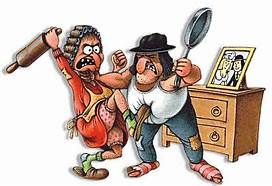
As an attorney, I teach negotiation skills to other attorneys, and one of the first things I tell attorney is that, in a negotiation, arguments will take away your power. Attorneys, at first, find this to be quite distressing because the big reason that they went to law school in the first place was because they love to argue. If they are not allowed to argue, they fear that they will just wither away and die.
However, to make my point, the conversation goes something like this:
Me: Tell me your negotiation strategy.
Young Lawyer: I plan to argue Point A.
Me: Does your opposing counsel know about Point A?
Young Lawyer: Yes. That is why they will argue Point B.
Me: Do you believe you will convince your opposing counsel of Point A?
Young Lawyer: Of course not. My opposing counsel has already convinced herself of Point B.
Me: Will your opposing counsel then convince you of Point B?
Young Lawyer: Of course not. I have convinced myself that Point A is the correct position.
Me: Do either of you own any cows?
Young Lawyer: Of course not. Why do you ask?
Me: Because you both can argue till the cows come home.
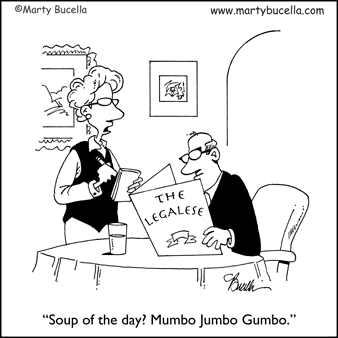
The point here is that nobody will give you credit for the argument they already knew you were going to make. However, this does not mean that you give up making arguments. Rather, you need to be mindful as to how you will present your argument. The instruction for lawyers is to present your position in the most factual way possible, and then draw upon those facts to reach the most logical conclusion. I should not have to argue that the world is round. It just happens to be round.
You also will need to be able to show that you heard the other side. “I understand that it is your position that the Earth is flat. I can understand that. You look outside and see flat. However, would you be interested in seeing pictures of the Earth from outer space?”
People will more likely hear what you have to say if you have shown that you have heard them as well.
Another effective way to deal with Cows Come Home CrankaTsuris is to always be curious and ask questions. The act of asking questions tells the person that you are with that you are engaged and you are hearing what they have to say. You also may disagree with what the person has to say, but that disagreement may not be apparent to the other person because the questions you ask may be the questions that the other person had not yet thought of.
Years ago, when I was in law school in Pittsburgh, I went to Saturday Morning services. The Rabbi took a liking to me, and always invited me for lunch after services. During lunch, the Rabbi like to discuss the Torah (Bible) reading from that morning. Sometimes, he would want to discuss the Gemara. The Gemara is a collection of books that house the various texts of rabbis from many generations ago providing analysis and commentary on various aspects of Jewish law or what is called the Mishnah. The Rabbi thought I would appreciate such discussions since I was studying to become a lawyer.
One particular Saturday, we had the discussion about the time that the Jewish people were wandering in the desert, and Moses sent a team of spies to the Land of Israel to learn about the people that were inhabiting the land, and presumably, the people that they would have to possibly fight to take over the land.
Some of the spies came home terrified because they saw that the Land of Israel were inhabited by giants. My question to the Rabbi was first, were these people really giants. The Rabbi took a very literal interpretation of the Bible, and said to me, matter of factly, that they were indeed giants.
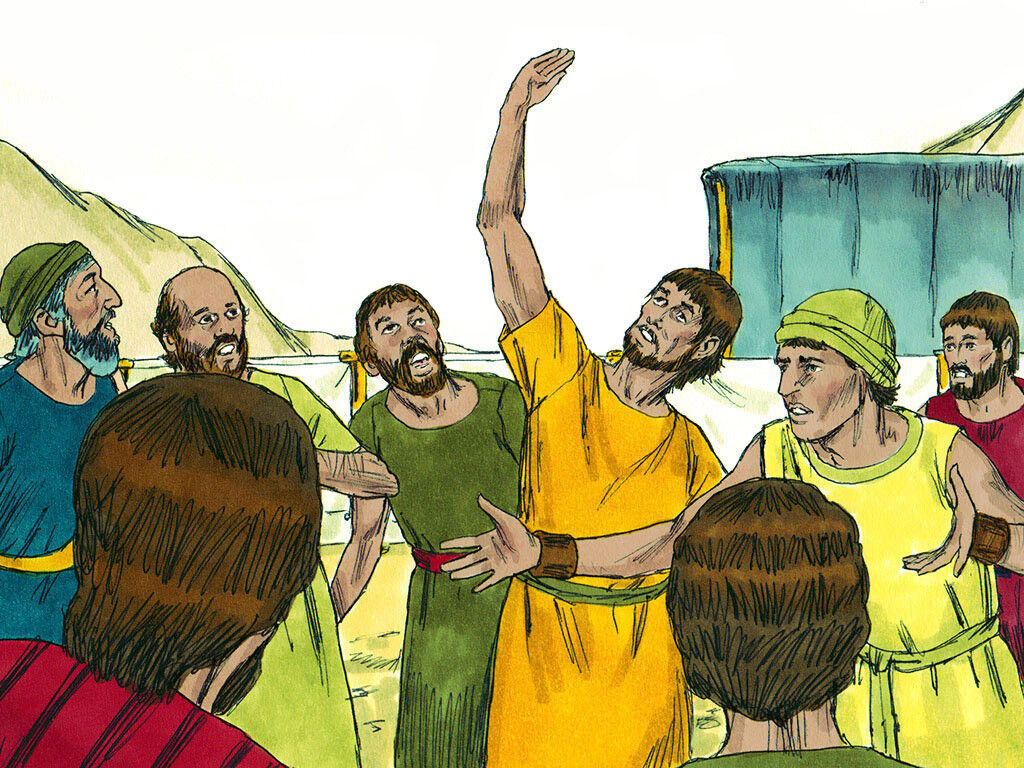
My question was then, if they were, in fact, giants, why were they so terrified. How hard could it be to defeat a giant. You take a slingshot and a pebble. In a second, “Boom! Down goes giant!”.
I reasoned that I would be more terrified if the spies came back and told everyone that the Land of Israel were inhabited by midgets. First, we were continuously told that this is the Land of Milk and Honey. If everyone there were very small people, I would be very scared to start eating and drinking this special milk and honey that everyone was talking about.
Also, if we ended up defeating midgets, my ancestors at the Passover Seder would be telling this story, and one of the four questions would be “Why can’t we pick on someone our own size?”
Not only that. We would be midgets asking this question!
Now, if the land was in fact inhabited by giants, I would be very excited to get some of this amazing and magical milk and honey! I would think to myself “This year in Jerusalem. Next year, I will be dunking over Michael Jordan!”
The Rabbi knew that I was a joker, and appreciated the humor, but I could see in his eyes that he was starting to think that maybe these people may not have been giants afterall. Or maybe they were. Who knows for sure.
My favorite Gemara discussion involved the judges who were present during the time of the First Temple made a ruling that the fat of the cow’s third stomach was kosher. Afterwards, they realized that they made a mistake, and it was in fact not kosher.
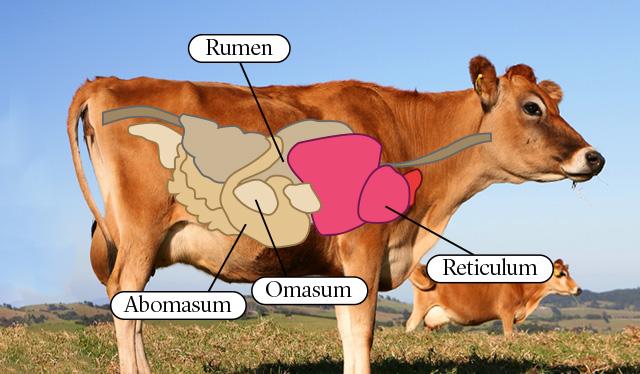
It gets even better. These same judges then rule again that the second ruling was incorrect, and the fat of the cow’s third stomach was in fact kosher. However, months later, these same judges reversed their ruling once again. The fat of the cow’s third stomach was indeed not kosher.
This raised the question as to whether the people who ate the cow fat and sinned by relying upon the judges’ ruling had to bring a sin offering to the temple, or should only the judges be required to bring a sin offering since it was their error in their rulings that caused people to eat the fat in the first place.
The rabbis in the Gemara ruled that the judges had to bring a sin offering. The people would only be required to bring a sin offering if half or more than half of the population ate the fat of the cow’s third stomach. Given that this mistake happened twice, you can combine the group of people who ate the fat after the first ruling with the people who ate the fat after the second ruling. You do not have to count a person twice if they ate the fat after both the first and second incorrect ruling.
This, of course, raised many important questions. Of course, I did not ask the most important question. Why are we even discussing something that really cannot be applied in any way today. Many people who would listen to something like this may even want to argue that it is all gibberish. Of course, that argument would lead to Cows Come Home CrankaTsuris and the person who made that argument would never be invited to Saturday lunch again.
My first question was who were these judges who made so many mistakes. Couldn’t they set up an appellate court or even a Supreme Court to make a final ruling? That would make the mistakes more understandable.
The bigger question involved this 50% threshold. The first question is how do you even count the people who ate the cow fat that the number of people met this high percentage. Did they take down names with each sale? Were they able to scan credit card purchases? The second and more pressing question to me was how likely would it be that half the Jewish population would run out to get the fat of the the cow’s third stomach once they heard the ruling.
Murray: Shirley! Did you hear the wonderful news? The judges ruled today that the fat of the cow’s third stomach is kosher!
Shirley: Murray. What do you need with the fat of the cow’s third stomach. The cow has four stomachs. Tell me. The fat from three stomachs is not enough for you? And, you know what the doctor said. You are a heart attack waiting to happen. Your cholesterol level is through the roof. You have to cut back on your fat intake!
Murray: But, before I die, I want to taste the fat of the cow’s third stomach!
Shirley: Fine. When you are lying on your deathbed, I will be sure to bring you a piece.
I told the Rabbi that I did not think it was possible to reach 50% on this one. Of course, if the judges ruled that lobster and shellfish became kosher, it would be very easy to count the 50%.
“Breaking News: A caravan of Jews are heading towards the Maine border! The word is that they are all going to a giant lobster and clambake!”
Again, the Rabbi had a good sense of humor, and he appreciated the questions as well. Questions create thought.
You may now be wondering where the phrase “You can argue till the cows come home” even comes from. I happen to have that answer as well.
In my book “A Grownup Guide to Effective Crankiness”, I introduced readers to Mr. Schlemiel. Mr. Schlemiel always wanted to own a chicken farm. When he saw Mr. Schmegeggi’s “Chicken Farm for Sale” advertisement, Mr. Schlemiel right away and called Mr. Schmegeggi and purchased the farm. The only problem was that the farm had no chickens. All of the chickens had crossed the road to get to the other side. The reason that the chickens crossed the road to get to the other side was that the grass was always greener on the other side.
Years went by, and the farm still had no chickens. Mr. Schlemiel would confront Mr. Schmegeggi about this, and Mr. Schmegeggi always assured him. “Soon, you will see. One day, your chickens will come home to roost!”
Mr. Schlemiel felt reassured from this comment. His wife was not. Mrs. Schlemiel would always say, “What a Schlemiel! We will never have chickens on our chicken farm!” Mr. Schlemiel would retort back, “You will see! The chickens will be coming home to roost!”
Mrs. Schlemiel would then always shout back. “You can argue till the cows come home! The chickens will never be coming home to roost. You know why? The grass is greener on the other side of the road! Open your eyes! What a schlemiel!”
With no chickens and no cows, Mr. Schlemiel decided one day to see Mr. Schmegeggi and complain.
Mr. Schlemiel: Mr. Schmegeggi. The chickens have not come home to roost. When I argue with my wife that they will, she just tells me that I can argue till the cows come home. You have to help me here!
Mr. Schmegeggi: I anticipated this problem. So, I have brought with me this cow. Her name is Elsa. Bring her home, and you will never have to argue about the chickens coming home to roost again.
Mr. Schlemiel: Wonderful! Thank you so much! You have solved this problem!
Mr. Schlemiel went home with Elsa the Cow. He excitedly went to show his wife and the days of fighting were now over.
Mrs. Schlemiel: First of all, your scrawny little cow looks more like a goat. And second, I said “cows”. Plural. You have one scrawny little goat cow. So, you can still argue till the cows come home! But, I do have an idea. Why don’t you take your scrawny little goat cow to the market, and maybe you can get a few dollars to buy some cheese. I can tell you that, by looking at your little cow, you are not going to get milk out of that thing.
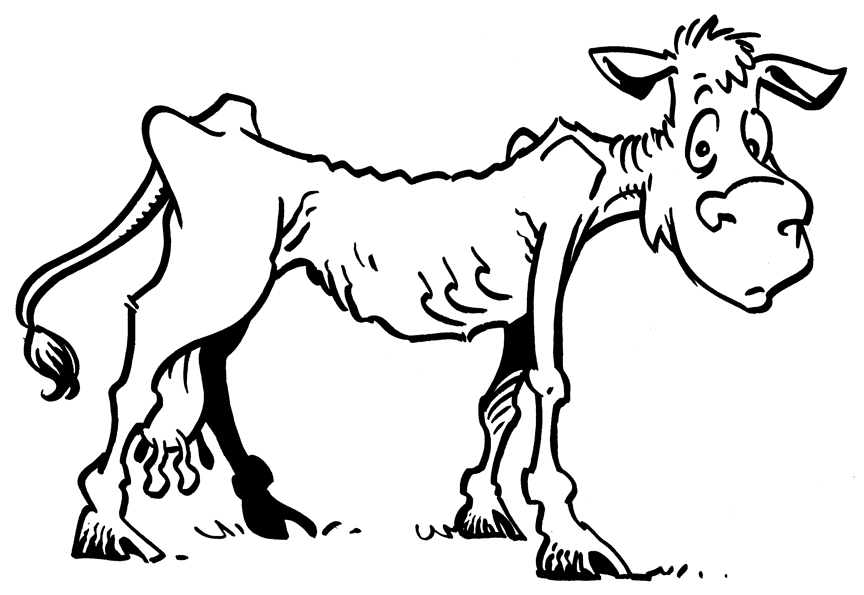
Mr. Schlemiel disappointedly went to the market. He was immediately approached by a strange man who offered him magic seeds. Mr. Schlemiel was told that these seeds would grow the greenest grass in all the land. With the greenest grass in the land, the chickens would all then come home to roost.
Mr. Schlemiel then asked, “What if the seeds do not grow the grass?”
The strange man replied, “I give you a double your cow back guarantee! No grass and you get two cows!”
Mr. Schlemiel was very happy with this answer. Even if the grass did not grow, he would get two cows to come home. Plural. Cows. Mr. Schlemiel thought to himself that he would then never have to argue again.
Amazingly, these were indeed magic grass seeds. Months later, Mr. Schlemiel’s farm had the greenest grass in all the land. Since the grass was now greener on his side of the road, all of the chickens had come home to roost. Even the cows,hearing about the delicious green grass, had come home as well.
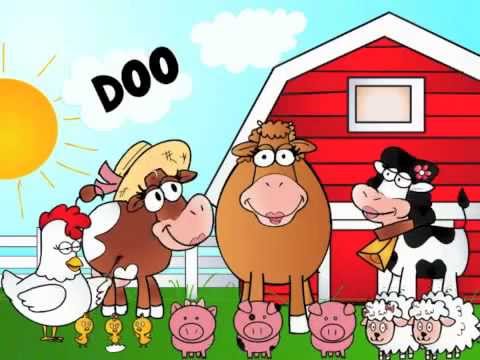
Mr. Schlemiel, seeing all the chickens and cows on his farm, he excitedly ran to his wife.
Mr. Schlemiel: Isn’t it wonderful! The chickens have come home to roost! And, even the cows have come home!
Mrs. Schlemiel: So what! You know what I heard today at the market. You know our neighbor’s son, Jack? He took their cow to the market, and got beans. The beans grew a giant beanstalk. Guess what was at the top of the giant beanstalk? I will tell you. The goose that laid the golden egg!! And this kid, I think he is maybe ten years old, even defeated a giant at the top of the beanstalk. What a schlemiel you are!
This brings us to the most important thing to learn when you have to deal with Cows Come Home CrankaTsuris.
Sometimes, you just can never win.




